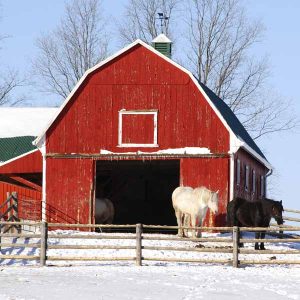
Preparing Your Feed Room and Hayloft for the Winter
Here are five tips to make sure your feed room and hayloft are ready for winter. 1. Clean out your...
» View Article
Here are five tips to make sure your feed room and hayloft are ready for winter. 1. Clean out your...
» View Article
Simply put, horses need energy. Energy is traditionally supplied by cereal grains such as oats, corn, and barley. These feedstuffs...
» View Article
Traveling is harder on your horse than you think. Tired, stressed horses are more likely to hurt themselves in the...
» View Article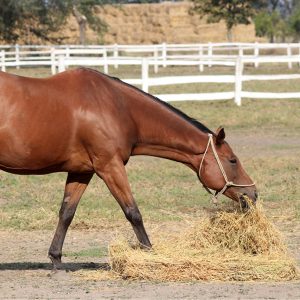
In his natural state, your horse would spend 16 to 17 hours each day roaming around and grazing on a...
» View Article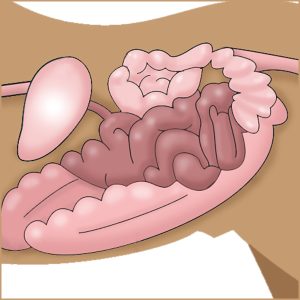
Your horse is a home The digestive tract of your horse is home to millions of microorganisms that aid in...
» View Article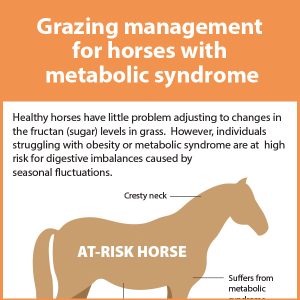
Healthy horses have little problem adjusting to changes in the fructan (sugar) levels in grass. However, individuals struggling with obesity or metabolic syndrome are at high risk for digestive imbalances caused by seasonal fluctuations.
» View Article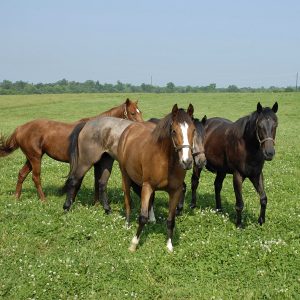
To most horse people, there is no better sight than a row of freshly bedded stalls, complete with a pile...
» View Article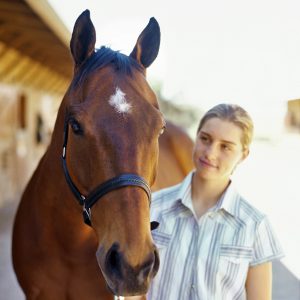
Do you believe gastric ulcers affect only high-performance athletes such as racehorses or Olympic contenders? Do you believe it takes...
» View Article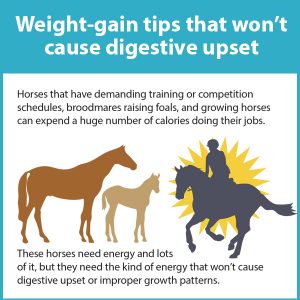
Horses that have demanding training or competition schedules, broodmares raising foals, and growing horses can expend a huge number of calories doing their jobs. These horses need energy and lots of it, but they need the kind of energy that won’t cause digestive upset or improper growth patterns.
» View Article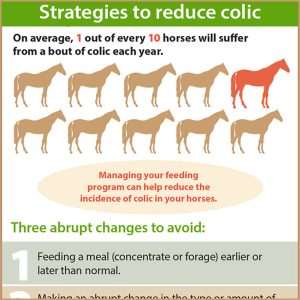
On average, 1 out of every 10 horses will suffer from a bout of colic each year. Managing your feeding program can help reduce colic in horses.
» View Article
As equine athletes, our horses constantly run the risk of injury. When injury occurs, the horse is faced with a...
» View Article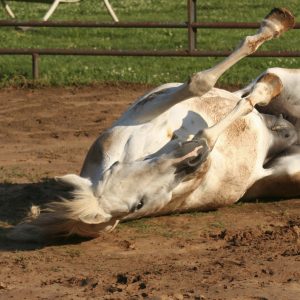
Common myth: If a colicky horse is passing manure, he will be fine. Busted: Not necessarily so, say veterinary surgeons....
» View Article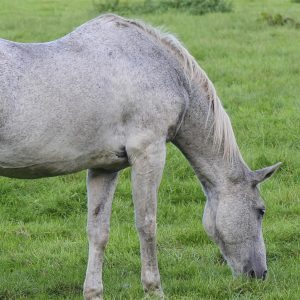
Recent research at the University of Kentucky shows that including prebiotics in a senior horse’s diet significantly reduces the markers...
» View Article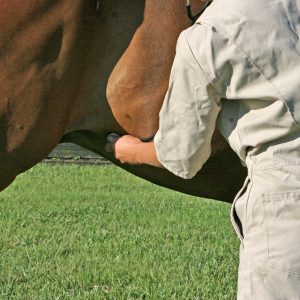
One way to determine if your horse is normal and healthy is to evaluate the rumblings of his gut. The...
» View Article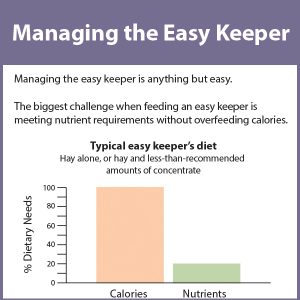
Managing the easy keeper is anything but easy. The biggest challenge when feeding an easy keeper is meeting nutrient requirements without overfeeding calories.
» View Article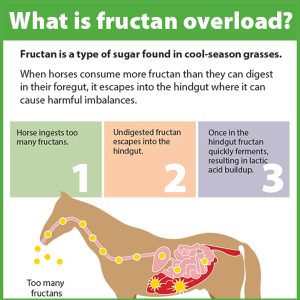
Fructan is a type of sugar found in cool-season grasses. When horses consume more fructan than they can digest in their foregut, it escapes into the hindgut where it can cause harmful imbalances.
» View Article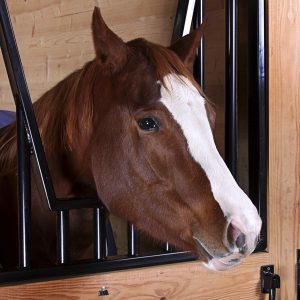
Whether a racehorse needs some downtime from the rigors of track life or a show jumper is on stall rest...
» View Article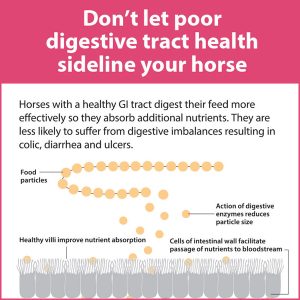
Horses with a healthy GI tract digest their feed more effectively so they absorb additional nutrients. They are less likely to suffer from digestive imbalances resulting in colic, diarrhea and ulcers.
» View Article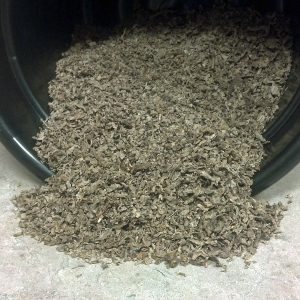
Beet pulp is a byproduct of the sugar beet industry. It consists of the pulp that remains after all the...
» View Article
Lush, cool season spring grass is packed full of vitamins, minerals and energy, but it is also high in sugar!...
» View Video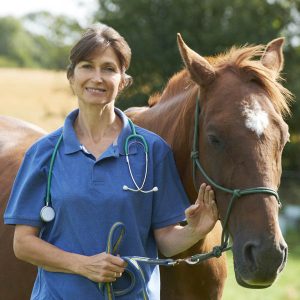
Myth: Always walk a colicky horse. Busted: Walking won’t cure colic and it isn’t always in your horse’s best interest...
» View Article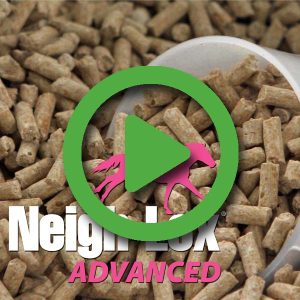
Neigh-Lox® Advanced provides a scientifically advanced blend of ingredients that work synergistically to maintain your horse’s digestive tract in peak...
» View Video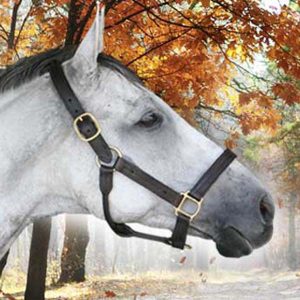
As the seasons change, so do the quality and content of your horse’s feeding program. Winterizing your horse with Kentucky...
» View Article
Do you worry about colic in your horse? Did you know you can reduce the threat of colic by identifying...
» View Article
"*" indicates required fields